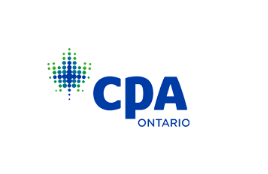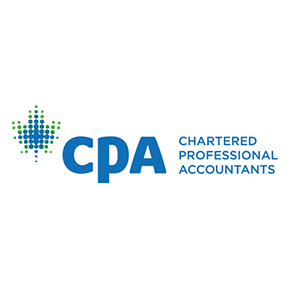Networking is the set of communication skills required to build relationships, inform others, and learn from and about co-workers and clients. Managing the impression you make and maximizing your ‘like-ability’ are the keys to making every networking opportunity consistently profitable. First impressions really are important. The way you greet people can set the tone for the entire interaction that follows. If you make a poor initial impression, you may spend the rest of your time overcoming it. In this fun and interactive workshop, you will be given tips on putting your best foot forward with the right handshake, effective introductions, and presenting and requesting business cards with confidence. You’ll learn the differences between interacting in a large group venue versus the requirements of a more intimate setting. You’ll master the principles of impression management by exploring perceptual tendencies, the ins-and-outs of small talk, and the subtleties of office diplomacy.
Do your presentations have the impact you intend? Are you unsure what information should be included in, or omitted from, your presentations? Does your delivery grab and hold your audience’s attention? Do your words motivate audiences to action? Your executive image can be either built or undermined by your presentation abilities. This highly successful workshop will enhance your presentation skills and give you the insights you need to project a confident executive image in any speaking circumstance. We’ll cover everything you need to know to deliver any presentation with clarity, persuasiveness, and confidence. This course is designed for professionals with an emphasis on organizing your thoughts and data for maximum impact, developing visuals to enhance your message, and projecting competence through body language and voice.
Job applications specify the duties and responsibilities that the work requires. Your resume and cover letter are your response to these requirements. It’s not easy, however, to present your skills, knowledge and characteristics in writing so that a recruiter invites you for an interview – especially when they may have many applications to choose from. This session will provide you with practical and creative tips to increase your success in being selected for an interview.
Client negotiations can sometimes leave us feeling frustrated when we feel the client is being unreasonable. Our responses in these situations will have an impact on the present negotiations, engagement with the file, future business, and so on. Dealing with difficult clients requires that we be at our best under pressure. To engage clients with tact, diplomacy, skill, and compassion are the hallmarks of learned communication competence.
Our responses to these clients must be based on professional integrity and assertive communication while still maintaining a supportive communication climate.
We need to explore the underpinnings of unreasonable requests and behaviours in order to understand them and move ahead with supportive professionalism.
A universal perceptual tendency is to “judge a book by its cover.” We form lasting opinions based on what we see. In fact, over half of the impression you convey to others is based on appearance. The look of credibility, composure and professionalism must accompany the message for an audience or client to accept it. You must be believed to be heard, and we believe what we see.
Be sure to send the full message by visually presenting your professional credibility. This seminar is about attaining a professional presence that, in all circumstances, speaks well of you. Learn how your body language, dress and personal style impact the decisions others make of you and your ideas.
In this seminar, we introduce the professional personal brand concept with the purpose of encouraging all workers (receptionists to CEOs) to take control of their own careers. Unlike a personal brand which focuses on self-interested aspects of one’s private life, a professional personal brand is service-minded and is uncompromisingly focused on one’s value to others. Conventional wisdom of impression management asserts the importance of acting and dressing for success, as all of our observed actions shape expectations of future behaviours.
As the lines between professional and personal reputations become blurred, it is important to know how to leverage social media to one’s professional advantage and to avoid the reputation-destroying outcomes of politically incorrect tweets, inapt Facebook postings, and errant instant messages. In this seminar, you will learn to reclaim, recast, or renew your personal brand with a focus on professionalism. A professional personal brand honors the greater good one has accomplished for others and conveys one’s capacity to contribute value to your network of colleagues, clients, and customers.
These are unprecedented and uncertain times. Many of us are looking for ways to stay connected while working remotely. Now more than ever, we need to focus our efforts, have clear goals and implement strategies to use our time effectively. This session will help you avoid procrastination and establish new habits to get the most out of your time.
Anyone who works at a desk knows the importance of good writing skills. This course is just what you need to write clear, concise business letters, memos, emails and reports. Professionally relevant activities and basic do’s and don’ts will have you writing like a pro as you discover the secrets to well-written sentences and learn how to quickly organize your thoughts.
Too much writing and too little time is the recurring challenge of the busy professional. Learning how to focus your main message and bring it to your readers’ immediate attention is key to fast and effective business writing.
Join us for an illuminating program to view with new eyes the essentials of intercultural communication. Find out what the Harvard Business Review cited as the single most significant skill leading to career success. Leave with a new appreciation for generational differences and how we can thrive by tapping into our strengths.
How are you being perceived through email, text messaging or voice mail? Learn the simple to implement skills of organizing a one-way transmission to motivate another to pay full attention to your message. The organisational structure (when to say what) assists tremendously with comprehension and retention of even the most complex of ideas. Impress all with your ability to simplify the complex, get to the heart of the matter, and motivate receivers to want to pay attention.
In this fun and interactive workshop, you will be given tips on putting your best foot forward with non-verbal communication, effective introductions, table small talk, serving yourself at a buffet, dining demeanour and behaviours that will make you confident in any business social situation. You’ll learn the differences between attending larger group buffet venues and smaller dining situations.
Conversing with your clients at the dinner table is always an opportunity to create and strengthen the relationship, or to inadvertently weaken it. Understanding the ingredients of good conversation, knowing what to say and when, directing and redirecting the interaction, and being capable when it becomes difficult, are the hallmarks of excellent dining etiquette.
We all need to be aware of how others, especially clients, are viewing our behaviour. It’s no secret that clients and colleagues are using the behaviour they see to form their lasting impressions of you. Feel comfortable in conveying your best self by learning the why, when, where, and how of professional protocols. These “rules” of office behaviour are not restrictive; in fact, quite the opposite is true. Knowing what the expectations are and knowing how to meet them provides a foundation of confidence and composure that enables personal expression without worrying: “am I doing this right.”
Learn how to expand your listening capabilities and become a more effective communicator. Listening is a learned skill that typically has been ignored as such; consequently, it’s our worst communication skill. Learn to take in a greater amount of information, hear what’s not being said, and build relationships in this powerful session.


